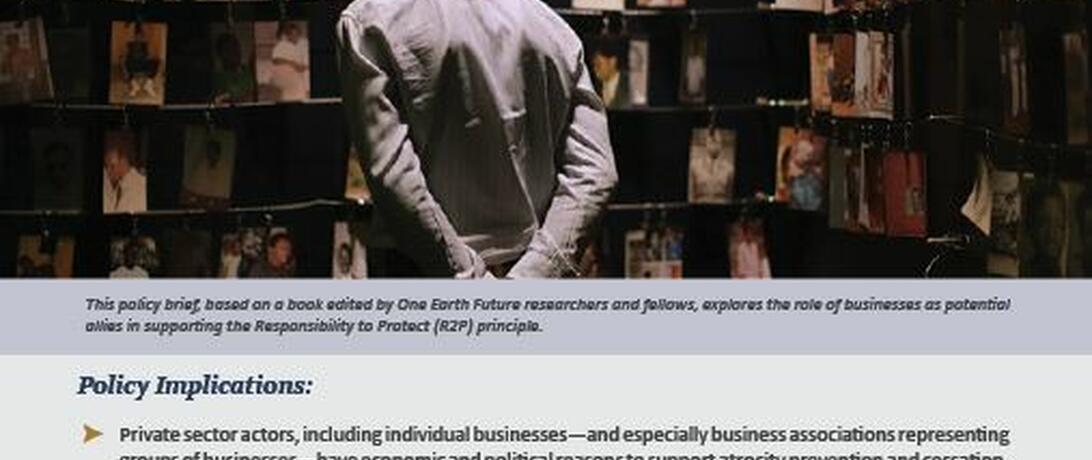
A major contribution to the prevention and cessation of mass atrocities was the development of the “Responsibility to Protect” as a formal commitment by United Nations member states.
Key Findings
Known as R2P, the principle affirmed member states’ commitment under international law to prevent and stop atrocities within their own borders and elsewhere. Since its inception, R2P has been controversial, and there has been debate over how to operationalize and support it. A recent book edited by One Earth Future researchers and fellows, The Role of Business in the Responsibility to Protect, examines what the role of the private sector can be in preventing atrocities and driving global commitment to the norm.
- Private sector actors, including individual businesses—and especially business associations representing groups of businesses—have economic and political reasons to support atrocity prevention and cessation. They may represent an untapped resource for assistance in supporting national or international interventions designed to stop or prevent atrocities.
- There are demonstrable cases of private sector actors contributing to the mitigation, prevention, or cessation of atrocities. These include cases of business leaders working to protect individuals, companies contributing to messaging or diplomacy supporting peace and stability, and business associations working directly to engage in atrocity cessation.
- Among a spectrum of potential activities, business actors may have particularly important roles in “upstream” or early identification of risks signaling an outbreak of atrocity, in supporting peaceful communication mechanisms that contribute to peace, and in supporting diplomacy as a neutral convener.
- Day-to-day business operations can also contribute to peace and the prevention of atrocities by treating all employees and contractors fairly and creating access to economic opportunities.